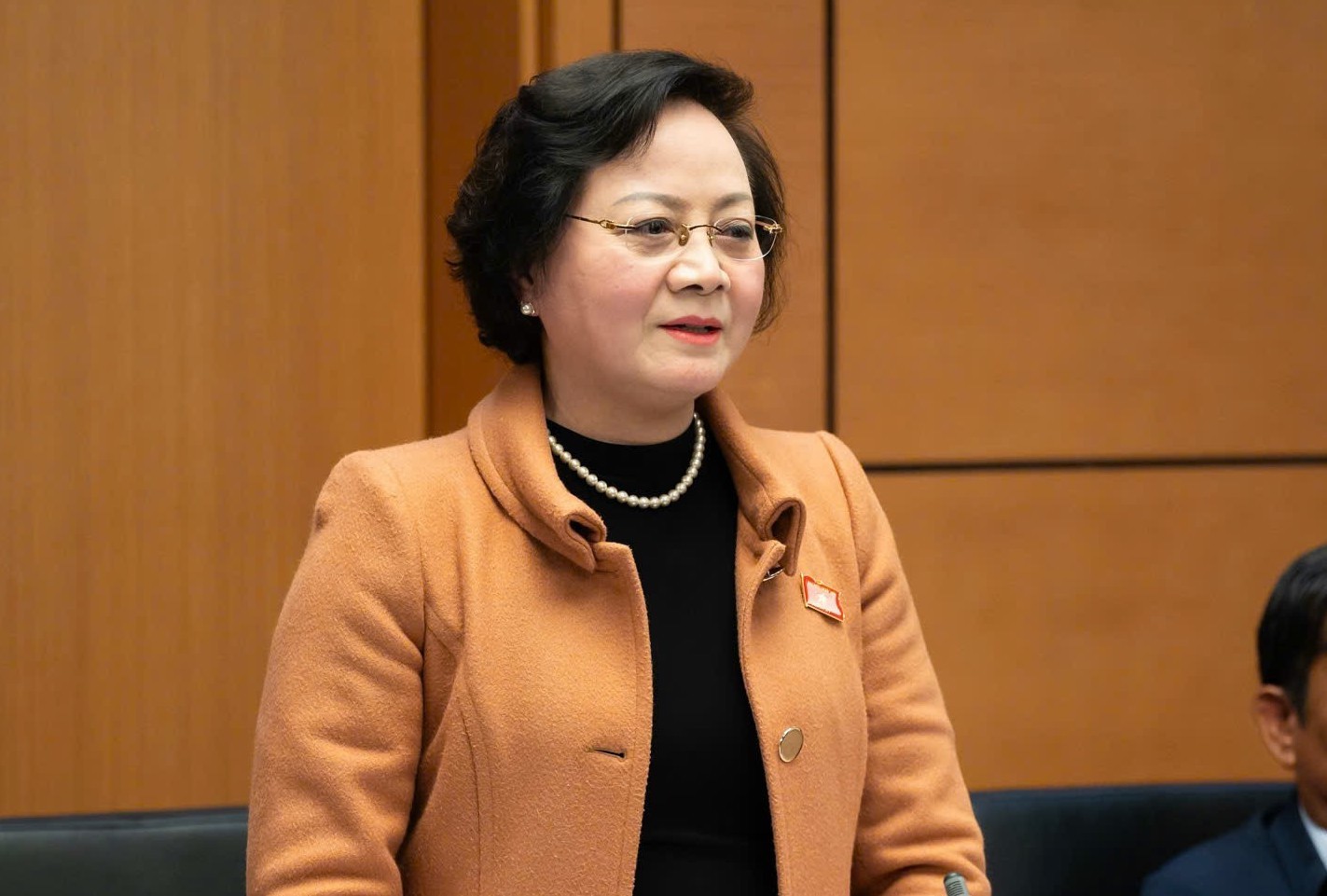These groundbreaking bills aim to streamline administrative structures, enhance efficiency, and establish a clearer division of power between central and local authorities.

Vietnam is set to implement two major legislative reforms with the introduction of the revised Law on Government Organization and the Law on Local Government Organization.
These laws are expected to bring groundbreaking changes in legislative thinking and fundamentally reshape the administrative apparatus from the central to the local level.
A historic legislative effort with a bold new approach
During a discussion session on February 13, Minister of Home Affairs Pham Thi Thanh Tra emphasized the urgency and importance of these two reforms, describing them as "historic."
According to her, the laws were drafted in just two months to align with the national agenda of streamlining and restructuring the government apparatus.
"This process has been like ‘building the plane while flying it,’ requiring not only speed but also meticulous attention to consistency within the existing legal framework," Minister Tra remarked.
One of the biggest breakthroughs in these new laws is their shift in legislative philosophy. Instead of detailing procedural rules, the laws will focus on broad, fundamental principles, ensuring long-term stability while allowing flexibility in governance and administration.
This approach, Minister Tra noted, is already in place in many developed nations. China’s State Council Law contains just 20 provisions, Japan’s Cabinet Law has 23, and Finland’s Government Act has 28 - all of which provide broad legal structures while enabling adaptability in governance.
Defining authority and streamlining responsibilities
A key feature of these reforms is the clear distinction between the roles of the central government and local administrations.
The revised laws reaffirm the Government as the highest executive body, responsible for implementing laws and policies. Meanwhile, local governments will receive greater autonomy to manage regional affairs.
The reforms also redefine the responsibilities of the Prime Minister, ministers, agency leaders, and provincial chairpersons, ensuring that tasks are not needlessly escalated to the central level.
Minister Tra stressed that this division of power would enhance accountability and efficiency at all levels.
The core principles: decentralization, delegation, and administrative authorization
The new laws introduce three key principles: decentralization, delegation of authority, and administrative authorization.
Decentralization ensures that local governments are legally empowered to handle regional affairs. Delegation of authority will be stipulated in sub-laws and decrees, making policy execution more efficient and adaptable.
Administrative authorization will be issued through government directives, allowing rapid responses to emerging issues.
Minister Tra highlighted that these changes are aligned with the vision set forth by General Secretary To Lam, who emphasized that "decisions should be made locally, implemented locally, and accountability should rest locally."
Addressing overlapping authority and legal complexity
Vietnam’s current legal framework contains significant overlaps in governance authority, leading to inefficiencies. A recent review found that:
177 laws assign responsibilities to ministers and agency heads.
152 laws define the powers of the Prime Minister.
141 laws regulate the authority of Provincial People's Committees and People's Councils.
92 laws involve a mix of different levels of local government.
Minister Tra acknowledged that if bold reforms are not implemented, bureaucratic inefficiencies and overlapping mandates will persist, hindering effective governance.
Legislative delegation: an unprecedented step in Vietnam’s legal history
One of the most significant innovations in these reforms is legislative delegation, which allows the Government to issue decrees and administrative guidelines to address urgent governance issues without waiting for lengthy legislative approval processes.
"This is an unprecedented step in Vietnam’s legal history," Minister Tra noted, explaining that without this flexibility, many practical issues would remain unresolved. The decision to introduce legislative delegation was made after careful deliberation, with the goal of creating a more agile and responsive administration.
Ensuring seamless implementation and legal consistency
To prevent disruptions, the Government has already drafted key regulations and guidelines related to these two laws.
"As soon as the National Assembly passes these laws, implementation will begin immediately. We will not allow a legal vacuum to emerge," Minister Tra assured.
She also emphasized that once the laws take effect, all related laws must be reviewed and updated within two years to maintain legal consistency.
The revised Law on Government Organization and Law on Local Government Organization represent a landmark shift in Vietnam’s governance model. By emphasizing decentralization, defining clear responsibilities, and introducing legislative delegation, these reforms are set to significantly enhance the efficiency and effectiveness of government operations.
With these changes, Vietnam is embracing a modern, flexible, and streamlined approach to governance, ensuring that its administrative system is equipped to meet the challenges of the future.
Thu Hang